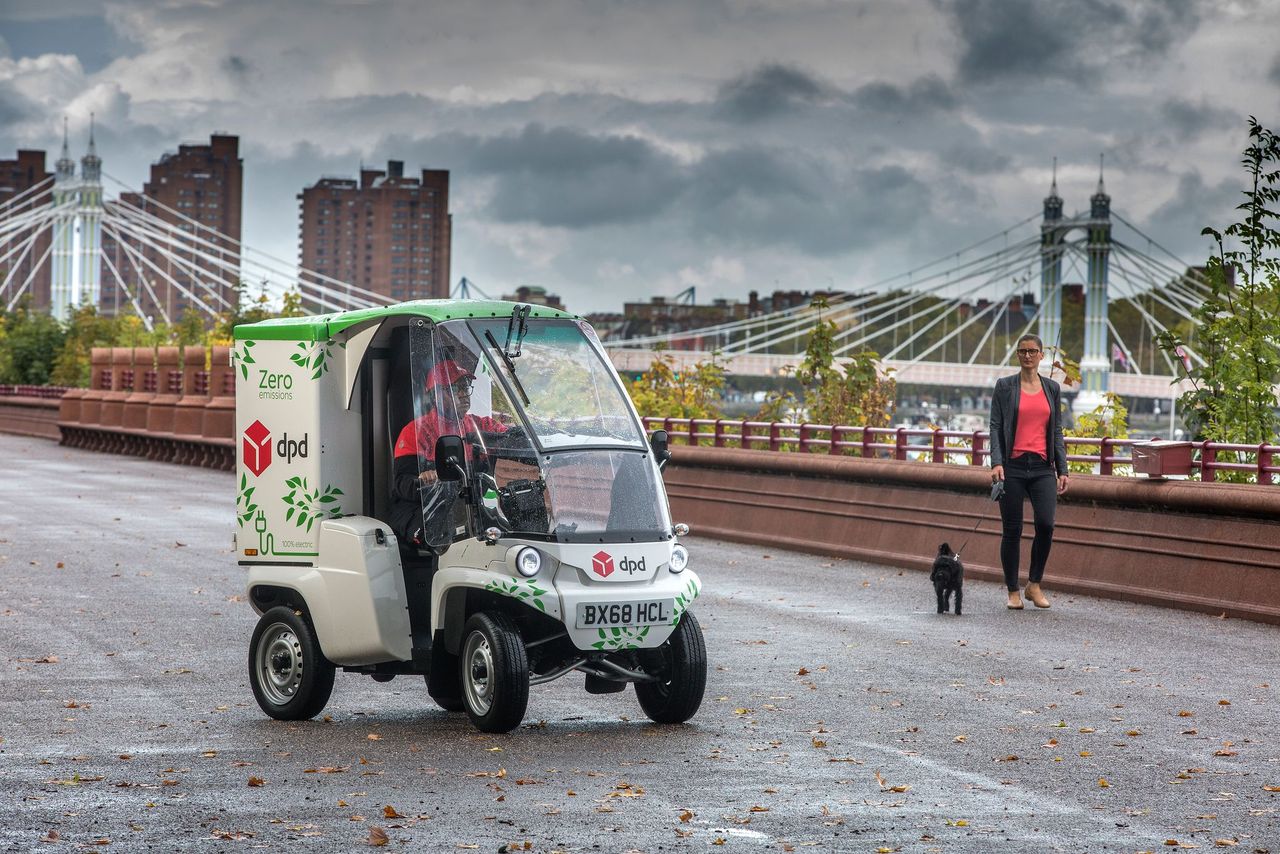Special Delivery: DPDgroup develops low emissions freight solutions
The complex challenges posed by climate change require equally innovative solutions. In an effort to spearhead zero and low emissions freight for last mile delivery, DPDgroup is establishing partnerships with cities across Europe, says Dominique Mamcarz.
The COVID-19 pandemic has triggered a major shift and boosted the number of online orders - parcel volumes are at their highest level seen for months. Simultaneously, e-commerce is exploding, with 70% of European e-shoppers believing brands and companies must act more sustainably towards the environment.
Unsurprisingly, this poses a significant challenge to the freight industry: while it must meet surging demand, environmental goals cannot be easily discarded. With 77,000 employees delivering more than 5.3 million parcels each day, DPDgroup is one of Europe’s largest logistics companies. In 2018, the organisation committed to reducing its CO2 emissions per parcel by 30% by 2025.
DPDgroup’s ambitious plan relies on two key milestones:
- By 2025, delivering the 225 largest cities in Europe with low emission vehicles;
- By 2040, becoming fully CO2 free in last mile activities throughout Europe.
Working with cities to make ad-hoc solutions
The success of this plan hinges on close collaboration with the city authorities. As Boris Winkelmann, CEO of DPDgroup explains “We are committed to becoming a key partner for cities and customers to jointly make our planet a better place. We strive to make meaningful impacts, and therefore concentrate on cities where pollution and population density are the highest. Our target is to deliver the 225 largest cities in Europe with zero- and low-emission vehicles by 2025.” Made up of a network of domestic champions, DPDgroup is aware that the last-mile delivery solutions offered on each market need to take into consideration local habits, as well as customers’ expectations in terms of delivery and city centre landscape. There is no one-size-fits-all model for cities.
DPDgroup is attentive to the needs of each city and engage with local authorities to anticipate and react quickly to new requirements and legislations. DPDgroup aim to improve everyday urban life for local communities, rolling out zero emission and low emission delivery vehicles, along with innovative delivery solutions to reduce the carbon footprint of every parcel delivered.
Benefiting cities and citizens by working on (air) quality
Urban mobility accounts for 40% of all CO2 emissions of road transport, and consumers are increasingly concerned by air quality. In response, DPDgroup last year implemented an air quality monitoring programme. The programme was unveiled by Dominique Mamcarz, DPDgroup CSR Director, at the 2019 POLIS conference in Brussels. “Transport companies have a responsibility to act in a sustainable manner, measure and reduce continually their impact on the environment, by innovating and adapting their processes”, asserted Mamcarz. Based on this observation and in view of improving life quality and health in cities, DPDgroup aspires to play a central role in air quality tracking by using its existing delivery network and putting it at customers’ service.
The air quality monitoring programme brings two key advantages:
- Cities have the opportunity to tackle the air quality issues by making data-based decisions on mitigation initiatives and new traffic regulations;
- End-consumers have access to an air quality diagnosis at their doorstep
About DPDgroup
DPDgroup is one of the leading parcel delivery networks in Europe. With branches across the globe from Brazil to Belgium, the organisation has 77.000 employees delivering more than 5.3 million parcels each day. In recent years, the group has strengthened its commitment to sustainable freight. In 2018, the organisation committed to reducing its CO2 emissions per parcel by 30% by 2025.
Successful pilots and where to find them
In 2019, DPDgroup established a pilot project with POLIS member cities Lisbon, Paris and Madrid and later - in 2020 - London and Rotterdam serving as partners. Utilising innovative technology, the delivery fleet and depots have been monitoring PM 2.5 air pollution levels in real time, thus enabling Lisbon city authorities to design a unique low emission zone in the heart of the city.
Miguel Gaspar, Deputy Mayor of the City of Lisbon said, “This initiative is really useful for our city. It is a decisive project as it enables us to obtain additional key data to identify green areas and hot spots in the city. Thanks to our successful collaboration with DPDgroup, we are able to improve air quality in the city and have a positive impact on our citizens’ health”. Building on this success, DPDgroup plans to expand the initiative in 20 key cities across Europe by 2021.
Through these innovative transport initiatives with local and regional authorities, DPDgroup pursues its ambition to reduce CO2 emissions per parcel by 30% by 2025, and reaffirms its commitment to have a positive impact on communities, cities and society. As climate action becomes increasingly urgent, the freight industry must continue to transform and evolve, bringing together new technology and innovative partnership arrangements.
However, this cannot be achieved without attention to individual city’s unique logistics networks and policy landscapes. DPDgroup’s programme exhibits the opportunities presented when cities and organisations work together to deliver emissions reduction goals.
About the author:
Dominique Mamcarz is the CSR Director for the DPDgroup, dominique.mamcarz@dpdgroup.com

